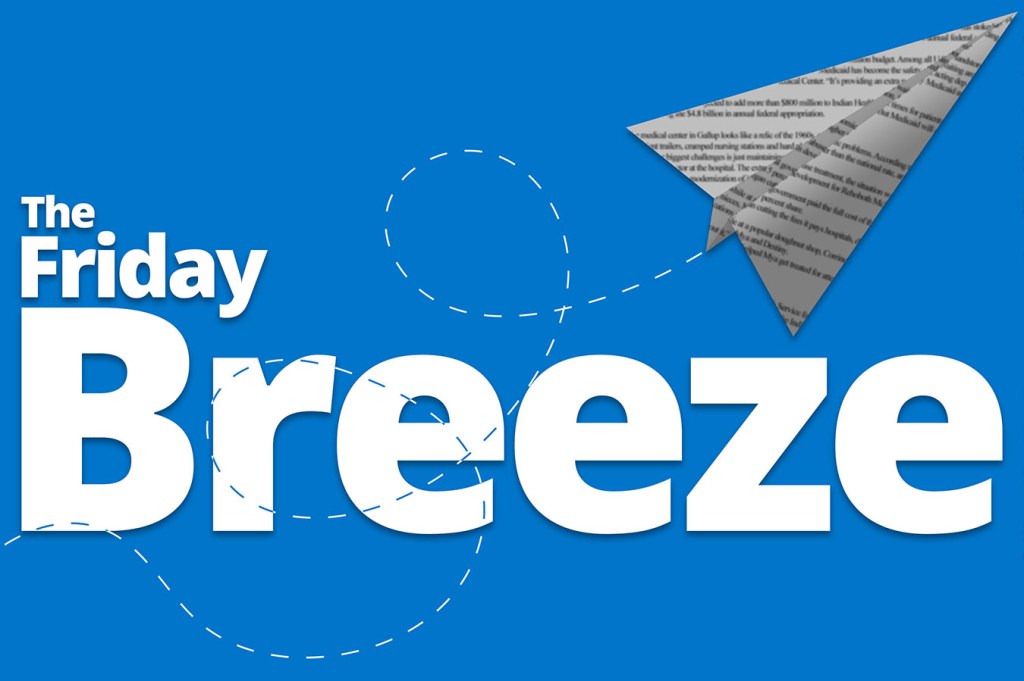It’s hard to believe anything happened this week other than the hearing for Supreme Court nominee Brett Kavanaugh and his accuser Christine Blasey Ford, but there actually was some health-related news, as well.
Here’s what you might have missed.
Congress managed to avert a government shutdown, which would have certainly been a talking point on the trail just weeks before midterms. President Donald Trump is likely to sign to the legislation, which has a nice boost for the National Institutes of Health tucked in there.
The Associated Press: Congress Sends Bill to Trump to Avert Government Shutdown
In a somewhat surprising move, House and Senate lawmakers actually ironed out their differences over the sweeping opioid package to arrive at a deal. Some of the more controversial arguments were left out in favor of trying to move it through, but the legislation seems likely to pass. Advocates were quick to criticize, saying it fell far short of what was needed to make a dent in the war against opioids.
The New York Times: In Rare Bipartisan Accord, House and Senate Reach Compromise on Opioid Bill
And in case you were wondering, the “doughnut hole” change that pharma had been eager to get in the fast-moving, must-pass legislation was dropped.
Under a proposed rule, immigration officials would be required to consider the use of public benefits to be “heavily weighed negative factors” when evaluating whether someone should be granted a green card. Cash benefits already are a factor in the decision, but this move includes programs like Medicaid and food stamps. There’s already been pushback from advocates who say the policy will have a chilling effect on a vulnerable population.
Meanwhile, a report found that dozens of doctors who perform medical checks on immigrants seeking green cards have a history of “egregious infractions.”
It turns out that it is really hard to get health care information to the general public. The Obama administration struggled with it for the health law, and those officials had millions of dollars and the might of the federal government backing them up. (Along with years to lay the groundwork.)
So, what happens with states trying to inform residents about the new Medicaid work requirements in a span of months?
The New York Times: One Big Problem With Medicaid Work Requirement: People Are Unaware It Exists
Remember those breakthrough hep C drugs that helped ignite public outrage against high prescription prices? Well, Gilead has announced it’s selling generic versions to make the treatment affordable for patients. The more cynical take on it is that competitors are beating Gilead out with less expensive versions of their own, and the company is trying to keep its footing in the new marketplace it once dominated.
Stat: Looking to Bolster Dwindling Hepatitis C Sales, Gilead Plans to Sell Generic Versions
In a tale of nuances, a federal appeals court upheld Louisiana’s “admitting privileges” law, which restricts abortion. The legislation is similar to one that came out of Texas that the U.S. Supreme Court recently knocked down because it creates undue burden. The key difference comes down to the states’ hospital policies on those “admitting privileges.”
A lot of eyes are on these abortion cases making their way through the courts.
The Associated Press: Louisiana’s ‘Admitting Privileges’ Abortion Law Upheld
In the must-read miscellaneous file for the week:
• Three years before the 2016 Pulse nightclub shooting in Orlando, an effort was launched to buck traditional protocol for responding to a mass violence incident and send paramedics onto the scene to triage victims. By the time Pulse happened, the initiative had sputtered, leaving bulletproof vests, with tourniquets and syringes, sitting in storage.
ProPublica/WMFE: Orlando Paramedics Didn’t Go in to Save Victims of the Pulse Shooting. Here’s Why.
• Sepsis. The word alone sends terrifying chills down the spine of anyone who has had a loved one with a medical emergency. It’s scary, it’s fast and it’s deadly. But a massive study is drawing fire, with accusations that people are being treated like laboratory animals.
The New York Times: Trial by Fire: Critics Demand That a Huge Sepsis Study Be Stopped
• A heartbreaking tale of one football player is a grim snapshot of the CTE problem that we’re only really starting to understand.
The New York Times: A Football Player’s Descent Into Pain and Paranoia
• The rate of suicide in young veterans has spiked. Although veterans make up only 8 percent of the U.S. population, they account for 14 percent of suicides.
The Wall Street Journal: More Young Veterans Committing Suicide, VA Data Show
Have a restful weekend, and maybe pop in for your flu shot. The death toll from last year’s vicious season hit 80,000. That’s just in America, not worldwide.







